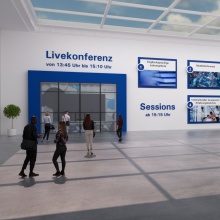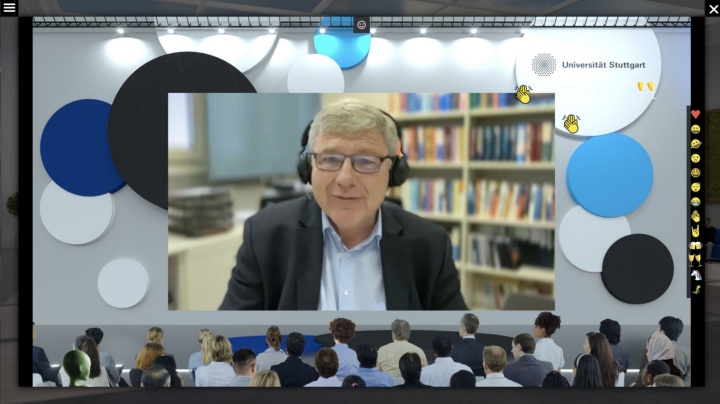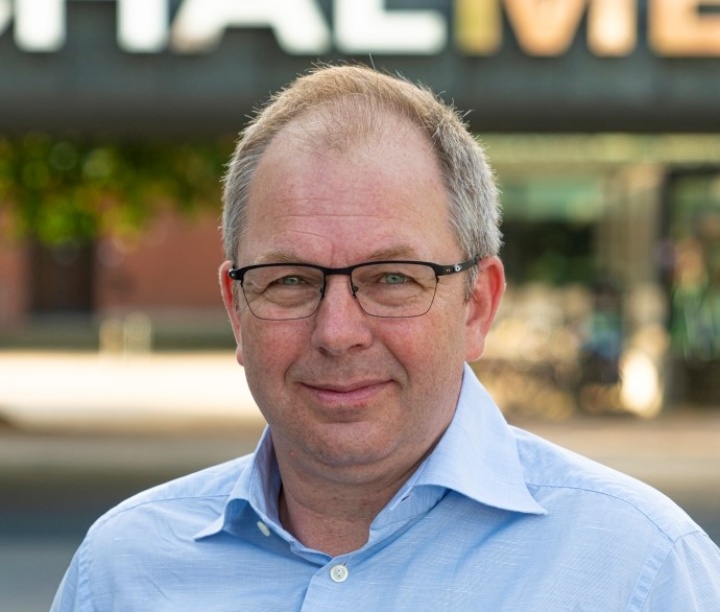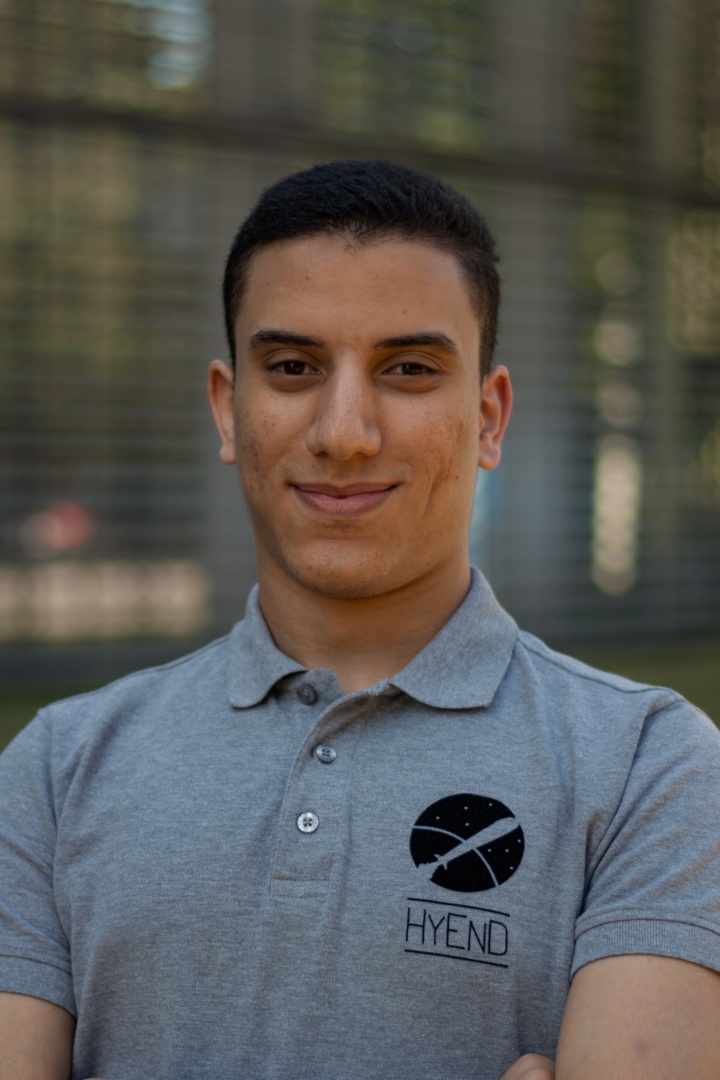"The proportion of international students at the University of Stuttgart is around 20 percent. This is a clear sign of our internationality," emphasized Prof. Frank Gießelmann, Prorector for Teaching and Continuing Education, in his welcome address at the online event, which welcomed over one hundred participants. The international master's programs have also been attracting students from all over the world to Stuttgart for years. "They have received and continue to receive an excellent education and usually return to their home countries and become influential in implementing what they have learned. In this way, they help to ensure that Stuttgart remains visible as a place to study."
Gießelmann went on to emphasize that despite many successes, there is also room for improvement, which has been incorporated into the university's internationalization strategy. He also stated that the aim of this year's Day of Teaching and Learning, was to provide an impetus for thinking about how the European higher education landscape in particular can become more visible as a place of study and student exchanges.
The lecture delivered by Prof. Mikael Enelund of Chalmers University of Technology in Gothenburg, offered external insights, with the presentation of his university's internationalization strategy - and its implementation in teaching. "Teaching is the foundation of any university, even though research is often the focus," Enelund said. Since global challenges can only be solved through international, intercultural, and interdisciplinary cooperation, Chalmers University relies, among other things, on mixed student teams. "Right from the beginning in the undergraduate programs, we specify 'top down' who is on which team in most courses," Enelund said. "It is important to work with different people from different backgrounds to gain cross-cultural experience. Later on, when you find a job, you can't choose who is in your team." Furthermore, since the Corona pandemic, Chalmers University has also offered online courses for its engineering programs in cooperation with its US partner university Penn State. This allows students to gain international experience, even if they are unable to travel abroad.
Marion Höcke presented the goals that the University of Stuttgart is pursuing in internationalizing study programs and teaching. "We want even more students to gain experience abroad by participating in the Erasmus program - even during their bachelor's studies," said the head of the International Office. She went on to emphasize that the university also aims to further expand English-language teaching. Of the 3,552 courses currently on offer, 2,910 are in German and 581 are in English.
Awards for excellent teaching and outstanding student commitment
Richard Powers, professor at the Institute of Literary Studies, received the University of Stuttgart's 2021 Teaching Award for his excellent teaching. Malte Schmid, representing the student council stuvus, delivered the laudatory speech and praised Powers' methodological diversity and his vivid online teaching.
The DAAD award for outstanding achievements of international students studying at German universities was also presented on the Day of Teaching and Learning. Abdelwaheb El Houimel, an aerospace engineering student from Tunisia, was also nominated for the award by the School for Talents because of his social commitment on the board of the Future Visions Association, which is dedicated to educating and supporting young people in Tunisia.
Strengthening interdisciplinary and international partnerships
A total of 23 well-attended lectures focusing on five different fields provided insight into the diverse international and intercultural work of the departments, central facilities, and institutes at the University of Stuttgart. The support structures for teachers and students, are already in place: Whether it's expanding skills for implementing or participating in English-language teaching, or broadening horizons through study abroad programs, intercultural exchange, or teamwork skills. One message prevailed throughout the lectures: Global challenges can best be solved in interdisciplinary and international partnership. Those who want to be part of the team of problem solvers must be open to networked academic exchange and enjoy the potential of internationalization, because internationalization also increases allure for the next generation, the job market and for academia. A change in favor of education, towards an open society, towards stronger exchange and cooperation - simply, beyond THE LÄND.
In his closing remarks, the Vice Rector for Teaching and Continuing Education summarized that the University of Stuttgart must make greater use of the opportunities it already has in order to become more competitive internationally. Gießelmann emphasized that even the use of hybrid teaching formats can be enough to open one's courses up to the world. The topic of internationalization in teaching must remain at the forefront of our minds. Strategic partnerships with high-ranking universities can only work if there are adequate offers on the part of the University of Stuttgart.





